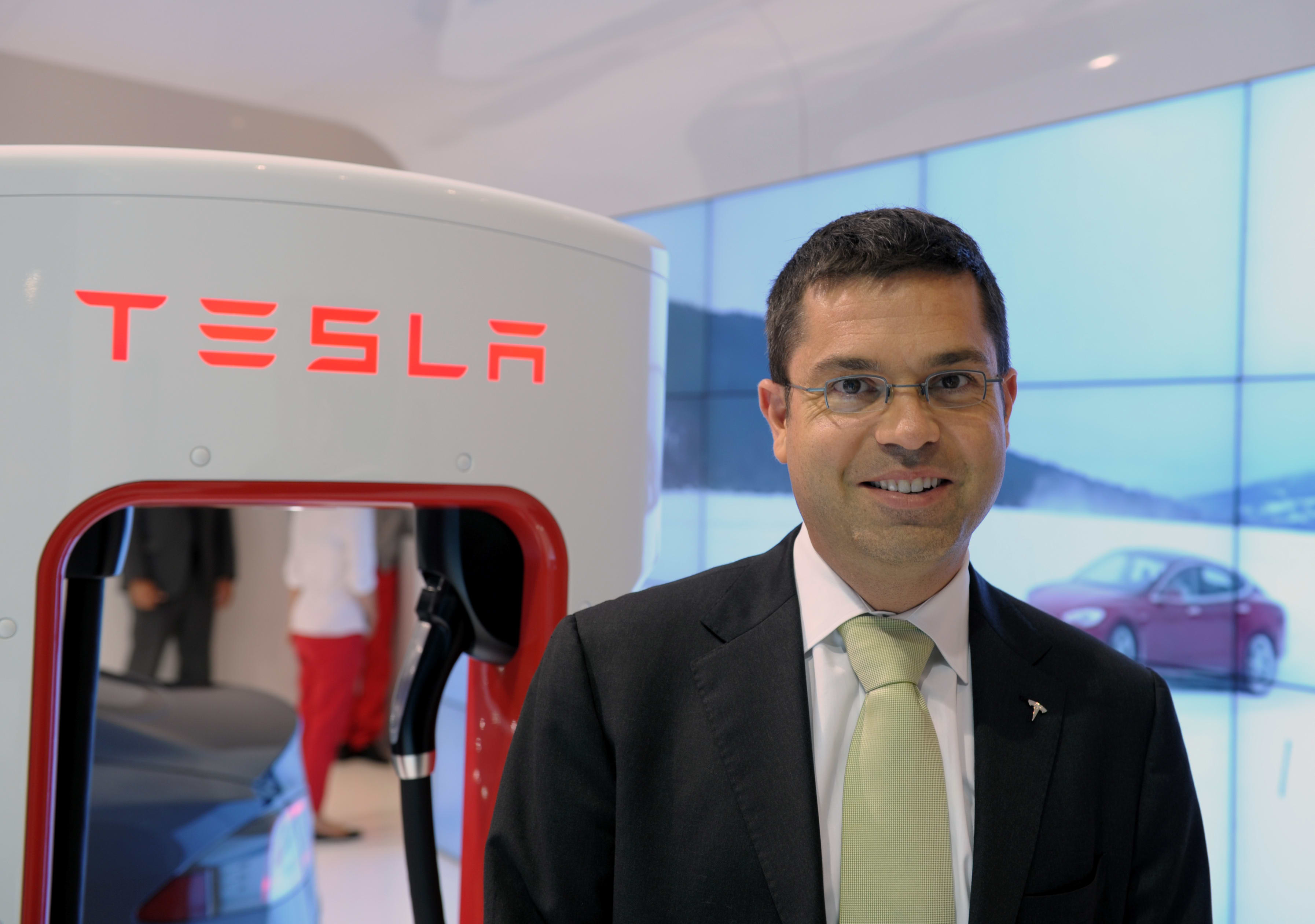Tesla’s former automotive chief sold more than $270 million of stock after leaving on June 3

US electric car maker Tesla Vice President Jerome Guillen poses at the Paris Auto Show on the last press day on October 3, 2014. The Paris Auto show opens to the public on Saturday.
Eric Piermont | AFP | Getty Images
Former Tesla executive Jerome Guillen sold more than $270 million worth of shares by exercising stock options after his departure on June 3, according to recent filings with the Securities and Exchange Commission.
Guillen became president of automotive in the third quarter of 2018, overseeing all of Tesla’s automotive business. During his tenure, the company opened its first plant overseas in Shanghai, expanded its battery cell supply partnerships and started mass-producing the Model Y.
But Tesla also struggled with quality issues, recalls and parts shortages under Guillen that significantly constrained production — the company produced zero Model S and X vehicles in the first quarter of the year before he was moved out of the role.
Tesla moved him into the role of president of heavy trucking in March this year, and in June Guillen left the company. The exact circumstances of his departure have not been disclosed.
According to Ben Silverman, director of research at InsiderScore, the filings indicate that Guillen exercised options for 451,118 shares of Tesla and likely sold the underlying shares for gross proceeds of $274.1 million.
After that, Guillen had 75,780 exercisable options left, Silverman estimates.
Tesla executives don’t get any special treatment when they leave. In more formal terms, they are at-will employees with no guaranteed severance or accelerated vesting of equity if they resign or are fired, Silverman noted.
Guillen had approximately $442 million in unvested options and unvested restricted stock when he left, according to InsiderScore’s analysis. Filings indicate that he also had 1,212 restricted shares that would have vested just two days after his last day at Tesla and would have been worth nearly $700,000.
How options work
Stock options give employees or executives at a company the right to purchase that company’s stock at a certain price for a limited window of time.
Execs at fast-growing tech companies often earn more through vesting and exercising options than they do from their salary. Some compensation plans allow them to vest shares only after hitting certain milestones at the business, not just based on time spent employed there.
When share prices rise above their exercise price, an employee or exec who has vested their shares can buy and then immediately sell them to pocket the difference as cash, or they can exercise the options but hold on for the long term if they believe the value of the shares will continue to rise.
Typically, exercising stock options will incur taxes and sometimes other fees whether the shareholder decides to hang on or sell them right away.
Unclear why he sold
Guillen did not respond to a request for comment and has not spoken publicly about his departure from Tesla or his personal investment strategy.
Silverman said of the former exec, “He may have had a narrow window of time to exercise his options or forfeit them. It could have been a use-it-or-lose-it situation that made him decide to buy and sell so much now. He’s also not an insider any more. So he may not feel comfortable having that much exposure to the stock. That’s not entirely unusual. If you’re not an insider, you’ve lost your information edge.”
Meanwhile, Tesla has not announced the appointment of a new head of heavy trucking.
During an April 2021 earnings call, CEO Elon Musk mentioned that Tesla was “continuing development work on the Semi,” indicating the company isn’t close to mass-manufacturing its debut, heavy-duty vehicle for which Guillen was made responsible. Tesla first revealed the Class-8 Tesla Semi in November 2017.
On the same first-quarter earnings call, Musk talked about delays in manufacturing the company’s new large battery cell, the 4680, which Tesla designed and aimed to manufacture on its own, in part to power its larger vehicles, the Semi and forthcoming Cybertruck.
Musk said in April, “We’ve made quite a few cells. We’re not quite yet at the point where we think the cells are reliable enough to be shipped in cars, but we’re getting close to that.” He said Tesla was still “quite optimistic about achieving volume production of the 4680 next year.”